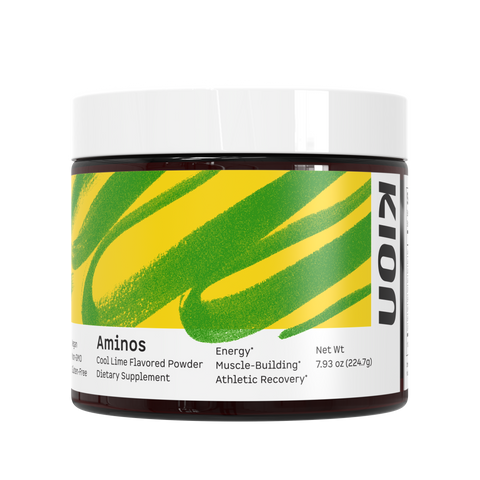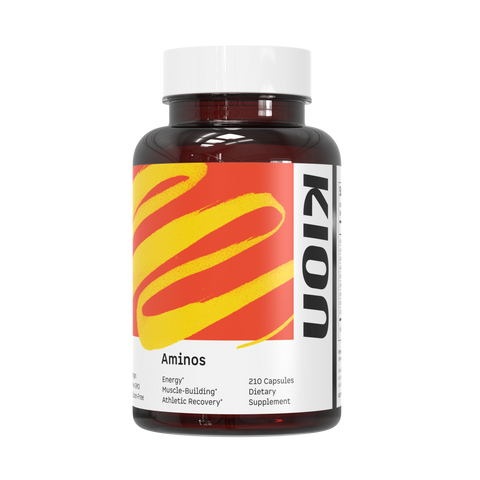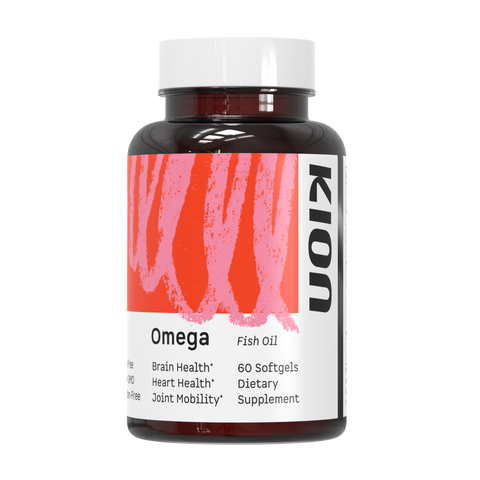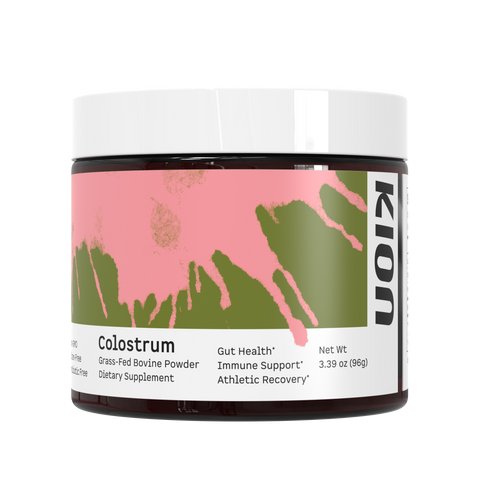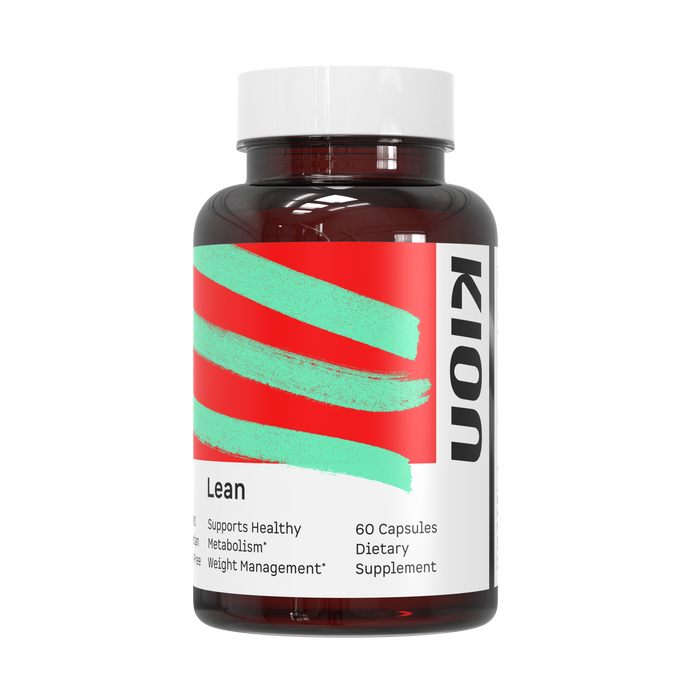Have you ever hit up your local all-you-can-eat lunch buffet, only to be snoozing at your office desk an hour later? If so, you’ve experienced first-hand how wacky blood glucose can zap your energy.
But that’s not all it can do.
Blood glucose can have wide-ranging effects on your body—including your skin, heart, brain, liver, kidneys, metabolism, eyes, and more.
Unfortunately, many healthy people never think twice about blood glucose until they’ve been told it’s an issue.
But the truth is, blood glucose-related issues could be wreaking havoc on your health before you even realize it.
In this article, we’ll cover what happens when your blood glucose levels are unstable, common signs and symptoms to watch out for, why even healthy people should care about it, and natural ways to keep your blood glucose levels balanced.
Blood Glucose's Role in the Body
While it tends to get a bad rap in the health community, blood glucose isn’t all bad. It has a number of important functions in your body, including supplying nutrients and energy to your cells and serving as the main source of fuel for your muscles, organs, and your brain.
It’s just when blood glucose gets too high (for too long, or too often) that problems can begin to arise.
But we’ll get to those in just a minute.
First, let’s take a walk down biology lane to uncover how blood glucose actually works in your body.
When you take a bite of a carbohydrate-rich food, such as a juicy jam-filled donut (wait, you’re probably more like the Paleo cookie type, huh?), those carbohydrates get digested and broken down into their simplest form in your body: glucose.
The glucose is then sent to your bloodstream, which is where the term “blood glucose” comes from. This quick rise in blood glucose signals your pancreas to release insulin, a hormone that shuttles the glucose to your cells for energy (namely muscle, liver, and fat cells).
As blood glucose levels start to drop again, your pancreas switches to producing the hormone glucagon. Liver cells respond to glucagon by releasing stored glucose into the blood, thus raising blood glucose levels back to a normal range again.
In essence, your body is always trying to maintain homeostasis—a “Goldilocks level,” if you will—of blood glucose.
Maintaining this balance is incredibly important for health, not only to give your cells the energy and nutrients they need but also to keep excess glucose out of your bloodstream, which can be harmful to your body’s organs, systems, and blood vessels.
Now, this brings us to the problems with high blood glucose.
When Blood Glucose Goes Bad
Let’s say you ate more carbs than you should have. (Maybe you couldn’t help yourself and had four of those Paleo cookies—whoops...)
While your body can usually deal with these occasional splurges, if you’re constantly eating foods that spike your blood glucose (such as having those four Paleo cookies every day for breakfast), your cells may eventually become insulin resistant, or your body may not be able to produce enough insulin to deal with the constant blood glucose rush.¹
When blood glucose goes bad, it can cause sneaky symptoms most people don’t normally think of, including:
- Bloating
- Brain fog
- Disrupted sleep
- Excessive thirst
- Frequent urination
- Acne or dry skin
- Poor athletic recovery
- Low energy and fatigue
- Hard time losing weight
- Feeling “hangry” or craving sugar/carbs
Overall, blood glucose is a delicate balance. When it’s not managed properly—whether through diet, exercise, or supplementation—it can cause serious problems that silently affect even the healthiest of people.
But carbohydrates may not be the only things that impact blood glucose levels, as evidenced in the landmark Weizmann Institute study.² People can have a high glucose response from foods that don’t contain many carbs at all, or stress, even poor sleep, and more.
But, for the most part, a majority of the available research is on carbohydrates, so we hope you don’t mind that we simplified things for the purposes of this article.
Why Even Healthy People Should Care About Blood Glucose
Because blood glucose affects everything from your cells to your organs, it’s truly one of the most important factors in your health.
Even if you don’t think you struggle with blood glucose issues, there’s a chance it could be silently zapping your energy levels, leading to oxidative stress, causing skin issues, and even making it hard for you to lose weight.
Let's dive into some of these further...
Energy Levels
If you value going through your day with steady, consistent energy levels, balancing blood glucose should be your number one strategy.
In moderation, your body likes glucose because it’s an easy way to get energy—especially for your brain and muscles. This is why long-distance endurance athletes will often eat snacks in the form of pure glucose during a race, like those oh-so-appetizing goos and gels.
You’ve seen this rapid energy boost first hand if you’ve witnessed a child after they’ve eaten candy, fruit juice, or some other sweet treat—then proceed to go from 0-100 in about 2.5 seconds, zooming around the house like a wild, sugar-fueled tornado.
However, you also know what happens after that sugar high: an energy crash that consists of a massive temper tantrum, quickly followed by passing out on the floor.
So, what causes this energy rollercoaster?
In healthy individuals, it’s usually related to consuming too many carbohydrates or sugar than their body can easily handle at once, causing blood glucose to quickly spike. In response, the pancreas may over-correct, releasing too much insulin, causing blood glucose to drop too low before glucagon can bring it back up.3
This causes a quick spike, and eventual crash in energy a few hours later—e.g., a big bowl of pasta for lunch, followed by the dreaded 3pm slump.
So, if you’re dealing with rollercoaster-like energy levels and need an extra cup of coffee or that darn Paleo cookie to get through your afternoon without snoozing, you may want to consider strategies to make sure your glucose levels are healthy and balanced.
Oxidative Stress
The up-and-down energy caused by high blood glucose is not only a rough way to live your daily life, but it can actually cause oxidative stress in your body—which is linked to other more serious health issues than just needing an afternoon nap.4
In a nutshell, oxidative stress results from an imbalance between antioxidants (good-ish) and free radicals (bad-ish) in your body. Free radicals are a well-known cause of cellular damage, disease, and perhaps even aging.5 On the other hand, antioxidants can counteract the negative effects of free radicals.
But when you have excess oxidative stress, like that caused by high blood glucose, you're generating more free radicals than antioxidants, tipping your body’s scales toward cellular damage.
(You may now close your chemistry textbooks…)
In other words, by causing oxidative stress, high blood glucose (postprandial hyperglycemia, to be exact) can have a wide-ranging, negative effect on your body—impacting even the healthiest of individuals.
These impacts may not be fully realized for several years, so it’s always a good idea to take preventative measures today with diet, exercise, and lifestyle strategies to maintain healthy glucose metabolism.
Skin Health
Could blood glucose be responsible for those annoying skin issues? Potentially...
Poor glucose metabolism has, in fact, been linked to acne and skin breakouts, especially in women.6
The mechanism between glucose and skin health is a little unclear at this time, but it’s hypothesized that as your body produces more insulin to deal with blood glucose, androgen hormones are activated.7 Androgens can stimulate skin sebum production in certain people, and excess sebum is a well-known cause of skin breakouts.8
Additionally, poor glucose metabolism has been shown to suppress sex hormone-binding globulin (SHBG), which is supposed to bind and capture excess sex hormones like androgens. This can cause further elevation of androgens. And if that’s not bad enough, elevated androgens can also contribute to making insulin resistance worse.1
What a vicious cycle, right?
Other issues, such as advancing the appearance of aging skin, may also be linked to blood glucose.
Researchers in the Netherlands studied over 500 non-diabetic patients, looking at their blood glucose levels. Even after accounting for lifestyle factors, the researchers found that as blood glucose levels increased, the subjects’ perceived age (as indicated by skin health) also increased.9
Whether you’re dealing with active skin issues, or you just want to maintain the appearance of young, vibrant skin, you may want to add “maintaining healthy blood glucose” to your skincare regimen.
Weight Management
Uncontrolled blood glucose may also have a major impact on your waistline.
As you previously learned in our mini biology class, when blood glucose is high, insulin is released.
Insulin, in addition to clearing glucose, is also a fat-storage hormone: It tells cells to store fat and prevents stored fat from being released and burned.
In other words, when your blood glucose is chronically elevated or your cells become resistant to insulin, your body stays in “fat storage mode”—making it incredibly difficult to lose weight and potentially even increasing fat gain (especially around the midsection).10
High blood glucose levels also interfere with a hormone called leptin. Leptin manages satiety and tells your brain when to stop eating. So wonky blood glucose can even make you hungrier and cause you to eat more!11
If weight management, appetite, and cravings are an issue for you, glucose metabolism could be a factor. In addition to the strategies below, you may also want to read our article on how to balance blood glucose levels for weight loss.
How to Balance Blood Glucose Naturally
While blood glucose is often reserved for biology class, now you know why it’s such an important factor in maintaining wellness, no matter what your health status.
So what can you actually do about it?
Luckily, the answer is… a lot.
Research shows that everything from exercise to sleep, stress reduction, and fasting can all contribute to healthy glucose metabolism and blood glucose levels.
In fact, we wrote an entire article on how to balance blood glucose with these lifestyle strategies if you want to learn more.
While lifestyle interventions can and should be part of your health-and-wellness toolbox, there are a few dietary strategies that can help you have the most immediate impacts on blood glucose:
Avoid Overeating
Foods high in simple carbohydrates are usually demonized because of their ability to quickly spike blood glucose, but the brutal truth is…
Overeating ANY food can lead to blood glucose issues.
Indirectly, eating too much increases your chance of weight gain, and being overweight increases your risk of developing blood glucose-related problems.12
So, even if you’re eating “low-carb ice cream,” (but you’re crushing a pint or two every night) you may still be harming your body’s ability to deal with glucose.
More directly, overeating has actually been shown to cause a malfunction in brain insulin signaling, which can reduce your body’s ability to deal with excess glucose in the bloodstream.13
Here are a few quick strategies to avoid overeating:
- Eat off of smaller plates
- Track your food intake
- Chew slowly and mindfully
- Stop eating when you’re 80% full
- Prioritize satiating foods, such as protein and healthy fats, over simple carbohydrates
Prioritize Protein
Not only can prioritizing foods high in protein can not only keep you from overeating, but they also have much less of an effect on blood glucose (again, if you’re not gorging yourself on them!).
Unlike quick-burning carbs, protein takes longer to digest, preventing post-meal blood glucose spikes 14 Many studies also show diets higher in protein (and lower in carbohydrates) result in better short- and long-term markers of blood glucose control.15 16 17
Even more interesting, upping your protein intake can also increase muscle mass. Muscle is the largest storage area in the body for circulating blood glucose (>75%)—so having more muscle means more places to shuttle glucose, and therefore lower blood glucose levels14
Here are a few quick strategies to increase protein:
- Aim for 0.8-1.2 g/kg body weight per day
- Include one serving of protein at every meal
- Supplement with Essential Amino Acids, which are the building blocks of protein
- Vegan or vegetarian? Check out this article for how to get more protein on a plant-based diet
Be Conscious With Carbs
Now, at this point, you may be thinking carbs = bad.
And while it’s true that carbohydrates tend to have a greater effect on blood glucose than most other foods, unless you have a specific medical purpose, most healthy people don’t need to completely eliminate carbohydrates.
The truth is, carbohydrates can absolutely be part of a healthy diet—especially if you’re active, you sleep well, manage stress, and have genes that predispose you to function better on a higher-carbohydrate diet.
When it comes to healthy glucose metabolism, most of us simply need to be conscious with carbohydrates, making sure to eat the right kinds, and not more than our bodies can handle.
If you want to learn more, this article covers how to do exactly that.
Here are some quick strategies on how to be more conscious with carbs:
- Stick to one serving at a time, preferably paired with protein
- Choose unrefined complex carbohydrates, which have less of an effect on blood glucose (such as starchy vegetables, whole fruits, and properly prepared grains)
- Save carb-rich meals for after exercise (when glycogen is depleted) and/or go for a post-meal walk, which decreases postprandial glucose spikes
But look… Carbs are delicious, aren’t they?
And we believe life should be enjoyable, which means eating delicious food and perhaps indulging in Paleo cookies, sourdough bread, or red wine every once in a while.
When that happens, it’s helpful to have some “damage control” support to help your body maintain healthy blood glucose levels.
Kion Lean: An Easy Way To Support Healthy Blood Glucose Levels
Your child’s birthday party. A wine night with friends. A date night out at the movies with a big bowl of popcorn.
These are all times when you don’t want to worry about avoiding carbs, blood glucose spikes, or any of that business. You just want to eat the cake and enjoy your life!
That’s why it’s a good idea to have a little support from science and nature in your back pocket.
There are three nature-based compounds that have been shown in studies to promote healthy carb metabolism and maintain healthy blood glucose levels when used as part of your diet: Panax notoginseng, Astragalus membranaceus, and wild bitter melon fruit extract.*
Alone, they can help your body deal with a little bit of carb-filled fun.
But together, when combined with an overall healthy diet and lifestyle, these potent plant compounds can support glucose metabolism, cardiovascular health, healthy blood glucose levels, and healthy weight management.*
However, if you try to buy them all separately, it can be expensive, hard to dose, and inconvenient.
Luckily, you can find them all together in just ONE affordable, convenient supplement on the market: Kion Lean.
"Excellent product, works as intended. I take two capsules whenever going from high fat keto style to introducing carbs and this helps avoid the carb spike and crash that normally comes on!"
- Brandon A. (verified buyer)
Kion Lean was created so that you can enjoy carbs without the guilt, stay energized, and stay lean.
Just throw a bottle in your bag, and you’ll be ready for whatever carbs the day has in store.
Ki Points
Blood glucose, while it often flies under the radar, can actually have wide-ranging effects on your body when not balanced.
Even the healthiest of individuals may have signs of poor glucose metabolism, ranging from unstable energy levels, oxidative stress, skin issues, and struggles with weight management.
Some dietary strategies to naturally balance blood glucose include:
- Avoiding overeating
- Prioritizing protein
- And being conscious with carbohydrate intake
However, on the occasion when you feel like having your cake and eating it, too, it helps to have some natural support.
That’s why we created Kion Lean: one simple supplement with three of the most potent plant compounds that, when taken with food, promote metabolic wellness, weight management, and healthy blood glucose levels.*
Try Kion Lean risk-free for 60 days today.
Try Now* These statements have not been evaluated by the Food and Drug Administration. This product is not intended to diagnose, treat, cure, or prevent any disease.
Scientific Research
- https://www.ncbi.nlm.nih.gov/pmc/articles/PMC1204764/
- https://wis-wander.weizmann.ac.il/life-sciences/blood-sugar-levels-response-foods-are-highly-individual
- https://www.ncbi.nlm.nih.gov/pmc/articles/PMC2153490/#:~:text=Abstract,functional%20hypoglycemia%20may%20be%20proposed.
- https://www.ahajournals.org/doi/10.1161/01.ATV.0000122852.22604.78
- https://www.ncbi.nlm.nih.gov/pmc/articles/PMC3249911/
- https://www.ncbi.nlm.nih.gov/pmc/articles/PMC4565837/
- https://www.ncbi.nlm.nih.gov/pmc/articles/PMC3846536/
- https://www.ncbi.nlm.nih.gov/pmc/articles/PMC2923944/
- https://pubmed.ncbi.nlm.nih.gov/22102339/
- https://pubmed.ncbi.nlm.nih.gov/21941054/
- https://www.ncbi.nlm.nih.gov/pmc/articles/PMC4069066/
- https://www.ncbi.nlm.nih.gov/pmc/articles/PMC380258/
- https://www.sciencedaily.com/releases/2012/10/121017153911.htm
- https://www.ncbi.nlm.nih.gov/pmc/articles/PMC6724448/
- https://diabetes.diabetesjournals.org/content/53/9/2375
- https://www.ncbi.nlm.nih.gov/pmc/articles/PMC5863244/
- https://www.ncbi.nlm.nih.gov/pmc/articles/PMC6115411/



